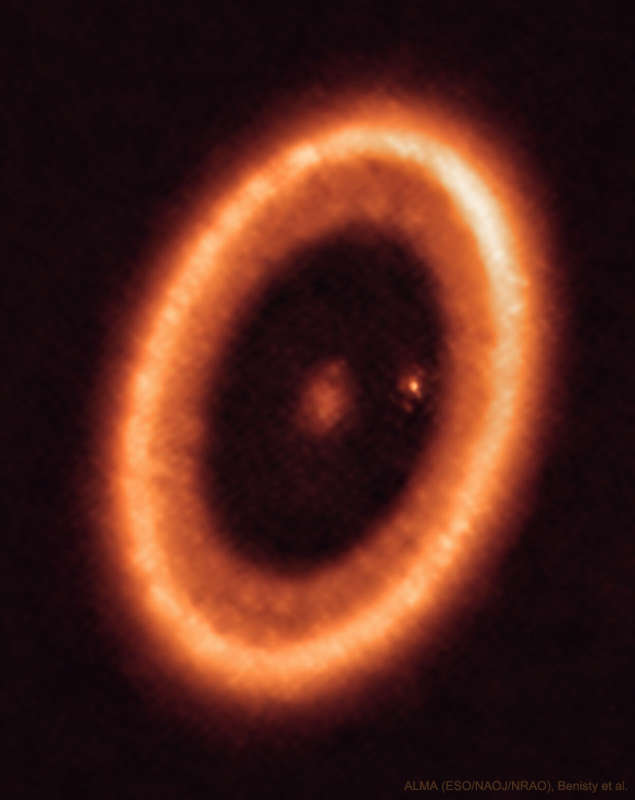
|
Explanation: It's not the big disk that's attracting the most attention. Although the big planet-forming disk around the star PDS 70 is clearly imaged and itself quite interesting. It's also not the planet on the right, just inside the big disk, that┴s being talked about the most. Although the planet PDS 70c is a newly formed and, interestingly, similar in size and mass to Jupiter. It's the fuzzy patch around the planet PDS 70c that's causing the commotion. That fuzzy patch is thought to be itself a dusty disk that is now forming into moons -- and that has never been seen before. The featured image was taken by the Atacama Large Millimeter Array (ALMA) of 66 radio telescopes in the high Atacama Desert of northern Chile. Based on ALMA data, astronomers infer that the moon-forming exoplanetary disk has a radius similar to our Earth's orbit, and may one day form three or so Luna-sized moons -- not very different from our Jupiter's four.
|
January February March April May June July August September October November December |
| |||||||||||||||||||||||||||||||||||||||||||||||||||||||
NASA Web Site Statements, Warnings, and Disclaimers
NASA Official: Jay Norris. Specific rights apply.
A service of: LHEA at NASA / GSFC
& Michigan Tech. U.
Based on Astronomy Picture
Of the Day
Publications with keywords: extrasolar planet
Publications with words: extrasolar planet
See also:
- APOD: 2025 September 8 ┴ IRAS 04302: Butterfly Disk Planet Formation
- APOD: 2024 July 8 ┴ Exoplanet Zoo: Other Stars
- Temperatures on Exoplanet WASP 43b
- Epsilon Tauri: Star with Planet
- APOD: 2023 October 17 ┴ PDS 70: Disk, Planets, and Moons
- APOD: 2023 September 20 ┴ Methane Discovered on Distant Exoplanet
- APOD: 2023 June 6 ┴ Star Eats Planet
